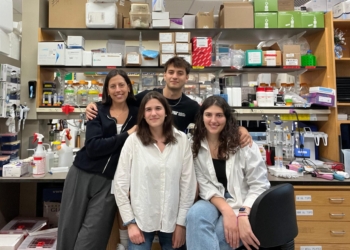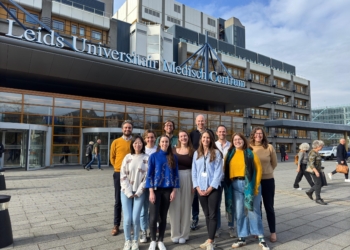The EACR’s Top 10 Cancer Research Publications is a regular summary of the most interesting and impactful recent papers in cancer research. It is curated by the Board of the European Association for Cancer Research (EACR).
The list below appears in no particular order, and the summary information has been provided by the authors.
Use the dropdown menu or ‘Previous’ and ‘Next’ buttons to navigate the list.
Y. Miao et al., Cell Volume 177, Issue 5, 16 May 2019, Pages 1172-1186.e14

Summary of the findings
Cancer treatments have been revolutionized by the development of immunotherapies. Adoptive T cell transfer (ACT)-based immunotherapy is a major current strategy in which a cancer patient’s cytotoxic T cells are engineered to recognize a tumor-specific neoantigen, then are reintroduced into the body to selectively attack the tumor.
Unfortunately, the majority of patients receiving ACT therapy experience tumor relapse, the nature of which is still poorly understood but vital for advancing clinical outcomes. To understand why, we designed a skin squamous cell carcinoma (SCC) mouse model that can be effectively targeted by ACT. Transcriptome profiling and lineage tracing revealed that a subset of TGFβ-responding cells, with characteristics of tumor-initiating stem cells, are refractory to the immunotherapy treatment and are the root of tumor relapse. We discovered that these TGFβ-responding cells survive by selectively acquiring CD80, a surface immune modulatory ligand previously thought to be exclusive to immune cells. Moreover, upon contact with CTLA4 expressed by the cytotoxic T cells, the CD80-expressing cancer cells directly dampened their activity. Our findings place tumor-initiating stem cells at the crux of how immune checkpoint pathways are activated.

 Future impact of the findings
Future impact of the findings
This study unraveled an unrecognized intrinsic mechanism that protects cancer-causing cells from anti-tumor immunity. The work represents a major conceptual advance in the cancer immunology field, with clinical ramifications. Although CTLA4 has been a target of current cancer immune checkpoint blockade therapies, it has long been assumed that it targets the regulatory T cell in the tumor-periphery. The finding that CD80 can be expressed by TGFβ-responding, tumor-initiating stem cells exposes a new target for CTLA4 blocking antibodies, and suggests their possible potency in conjunction with TGFβ-inhibitors.









